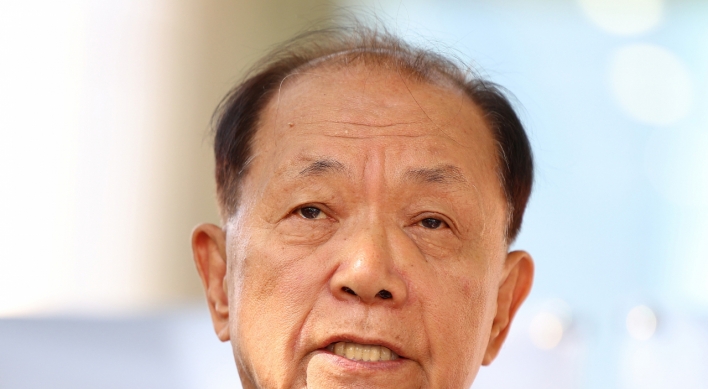It’s sad enough that at least 115,000 Syrians have been killed since the nation’s civil war began, but the World Health Organization reports that 575,000 others have been injured ― a number the organization expects to climb by 30 percent within the next few months.
 So what happens to these people with bullet wounds and other serious injuries? There’s the real tragedy: Almost two-thirds of the nation’s hospitals have been badly damaged or destroyed, 92 percent of the ambulances in affected areas are out of service, and the vast majority of the nation’s doctors, nurses and other health workers have fled or been killed.
So what happens to these people with bullet wounds and other serious injuries? There’s the real tragedy: Almost two-thirds of the nation’s hospitals have been badly damaged or destroyed, 92 percent of the ambulances in affected areas are out of service, and the vast majority of the nation’s doctors, nurses and other health workers have fled or been killed.
The few health care facilities that remain generally have no fuel, electricity or water. “Even where those in need can access health services,” the WHO says, “positive health outcomes are undermined by psychological stress factors, hygiene constraints, sub-optimal nutrition and, importantly, a lack of medicines, supplies and equipment.”
With little health care to speak of, infectious diseases are devastating the nation ― including a new outbreak of polio, not seen in Syria since the late 1990s. In fact, before the Syrian health ministry confirmed the cluster of “hot” polio cases in mid-October, only three others nations worldwide still had polio victims: Pakistan, Afghanistan and Nigeria.
Along with polio, other deadly illnesses are ripping though the population, including typhoid, hepatitis and leishmaniasis, generally known as the “flesh-eating” disease. And when the WHO mentioned “psychological stress factors,” it was referring to the likelihood that many Syrians are suffering from clinical depression and/or post-traumatic stress disorder. And you can be sure they have little if any access to psychiatric care.
As all of these problems and so many others ravage his people, Syrian President Bashar al-Assad gave a cheery interview to Syrian television in late October, saying: “Personally, I don’t see any obstacles to being nominated to run again in the next presidential elections” in 2014.
I can think of one obstacle we can hope will come to be: Assad is hauled before the International Criminal Court and tried on well-deserved charges of genocide.
After all, his regime is also blocking humanitarian workers from reaching rebel-aligned areas of need. As U.S. Secretary of State John Kerry noted last week: “The regime has systematically blocked food shipments to strategically located districts” so that “ordinary Syrians with no links to the civil war are forced to eat stray cats and dogs to survive.”
In early October, the United Nations Security Council issued what it called a “presidential statement” urging “the Syrian Government to immediately allow cross-border aid deliveries.”
Then, a few days ago, Valerie Amos, the U.N.’s undersecretary general for humanitarian affairs, told the council: “I am extremely disappointed that we have not been able to make further progress on the ground,” adding that “three weeks have passed since the adoption of the council’s presidential statement, with little change to report.”
As Kerry put it, writing in Foreign Affairs magazine: “The world cannot sit by watching innocents die.”
That’s especially true now that the polio outbreak is confirmed. It’s a highly contagious disease with no cure, and remember that more than 2 million Syrians are refugees in neighboring states. The disease can lie dormant in the intestines of those infected ― and while there still be infectious.
It also spreads from sewage, and most of Syria’s sewers and septic systems are damaged or destroyed. The WHO reported that in some areas, 50 to 70 people have to share one toilet, resulting in “poor hygiene conditions” so that “individuals are increasingly exposed to outbreaks of communicable diseases.”
Already Lebanon, Jordan, Iraq and the Palestinian territories are starting mass polio vaccination campaigns.
“Turkey is scaling up surveillance of suspected cases and vaccination of Syrian citizens under temporary protection in Turkey,” the U.N. says. Even Egypt, hundreds of miles away, just announced a polio vaccination campaign that begins in November. Meanwhile, Bulgaria, Turkey’s northwestern neighbor, is building a massive new border wall to keep Syrian refugees out.
With few ordinary vaccinations given to Syrian children in the last two years, at least 7,000 of them have contracted measles, a French health group reported, and that illness has spread to children in Lebanon.
All of this presents a humanitarian disaster for Syria ― and potentially the region and the world. The United Nations is correct: Assad absolutely must allow health and humanitarian workers free and protected access to the affected areas of his country.
If he continues to refuse, well, it’s time he was removed from power and then dragged to The Hague.
By Joel Brinkley
Joel Brinkley is the Hearst professional in residence at Stanford University and a Pulitzer Prize-winning former correspondent for The New York Times. ― Ed.
(Tribune Content Agency)
 So what happens to these people with bullet wounds and other serious injuries? There’s the real tragedy: Almost two-thirds of the nation’s hospitals have been badly damaged or destroyed, 92 percent of the ambulances in affected areas are out of service, and the vast majority of the nation’s doctors, nurses and other health workers have fled or been killed.
So what happens to these people with bullet wounds and other serious injuries? There’s the real tragedy: Almost two-thirds of the nation’s hospitals have been badly damaged or destroyed, 92 percent of the ambulances in affected areas are out of service, and the vast majority of the nation’s doctors, nurses and other health workers have fled or been killed.The few health care facilities that remain generally have no fuel, electricity or water. “Even where those in need can access health services,” the WHO says, “positive health outcomes are undermined by psychological stress factors, hygiene constraints, sub-optimal nutrition and, importantly, a lack of medicines, supplies and equipment.”
With little health care to speak of, infectious diseases are devastating the nation ― including a new outbreak of polio, not seen in Syria since the late 1990s. In fact, before the Syrian health ministry confirmed the cluster of “hot” polio cases in mid-October, only three others nations worldwide still had polio victims: Pakistan, Afghanistan and Nigeria.
Along with polio, other deadly illnesses are ripping though the population, including typhoid, hepatitis and leishmaniasis, generally known as the “flesh-eating” disease. And when the WHO mentioned “psychological stress factors,” it was referring to the likelihood that many Syrians are suffering from clinical depression and/or post-traumatic stress disorder. And you can be sure they have little if any access to psychiatric care.
As all of these problems and so many others ravage his people, Syrian President Bashar al-Assad gave a cheery interview to Syrian television in late October, saying: “Personally, I don’t see any obstacles to being nominated to run again in the next presidential elections” in 2014.
I can think of one obstacle we can hope will come to be: Assad is hauled before the International Criminal Court and tried on well-deserved charges of genocide.
After all, his regime is also blocking humanitarian workers from reaching rebel-aligned areas of need. As U.S. Secretary of State John Kerry noted last week: “The regime has systematically blocked food shipments to strategically located districts” so that “ordinary Syrians with no links to the civil war are forced to eat stray cats and dogs to survive.”
In early October, the United Nations Security Council issued what it called a “presidential statement” urging “the Syrian Government to immediately allow cross-border aid deliveries.”
Then, a few days ago, Valerie Amos, the U.N.’s undersecretary general for humanitarian affairs, told the council: “I am extremely disappointed that we have not been able to make further progress on the ground,” adding that “three weeks have passed since the adoption of the council’s presidential statement, with little change to report.”
As Kerry put it, writing in Foreign Affairs magazine: “The world cannot sit by watching innocents die.”
That’s especially true now that the polio outbreak is confirmed. It’s a highly contagious disease with no cure, and remember that more than 2 million Syrians are refugees in neighboring states. The disease can lie dormant in the intestines of those infected ― and while there still be infectious.
It also spreads from sewage, and most of Syria’s sewers and septic systems are damaged or destroyed. The WHO reported that in some areas, 50 to 70 people have to share one toilet, resulting in “poor hygiene conditions” so that “individuals are increasingly exposed to outbreaks of communicable diseases.”
Already Lebanon, Jordan, Iraq and the Palestinian territories are starting mass polio vaccination campaigns.
“Turkey is scaling up surveillance of suspected cases and vaccination of Syrian citizens under temporary protection in Turkey,” the U.N. says. Even Egypt, hundreds of miles away, just announced a polio vaccination campaign that begins in November. Meanwhile, Bulgaria, Turkey’s northwestern neighbor, is building a massive new border wall to keep Syrian refugees out.
With few ordinary vaccinations given to Syrian children in the last two years, at least 7,000 of them have contracted measles, a French health group reported, and that illness has spread to children in Lebanon.
All of this presents a humanitarian disaster for Syria ― and potentially the region and the world. The United Nations is correct: Assad absolutely must allow health and humanitarian workers free and protected access to the affected areas of his country.
If he continues to refuse, well, it’s time he was removed from power and then dragged to The Hague.
By Joel Brinkley
Joel Brinkley is the Hearst professional in residence at Stanford University and a Pulitzer Prize-winning former correspondent for The New York Times. ― Ed.
(Tribune Content Agency)






![[KH Explains] No more 'Michael' at Kakao Games](http://res.heraldm.com/phpwas/restmb_idxmake.php?idx=644&simg=/content/image/2024/04/28/20240428050183_0.jpg&u=20240428180321)










![[Herald Interview] Mistakes turn into blessings in street performance, director says](http://res.heraldm.com/phpwas/restmb_idxmake.php?idx=652&simg=/content/image/2024/04/28/20240428050150_0.jpg&u=20240428174656)
